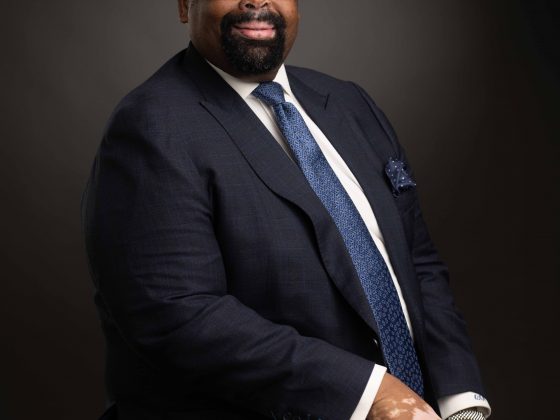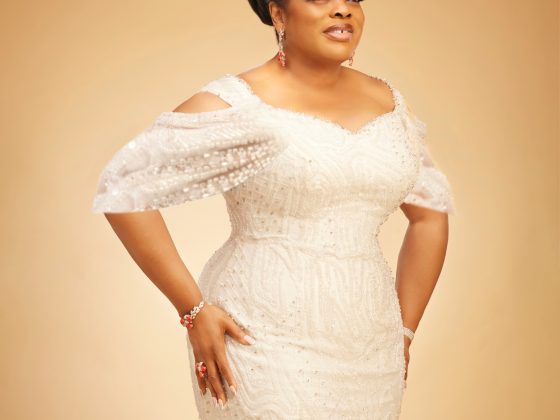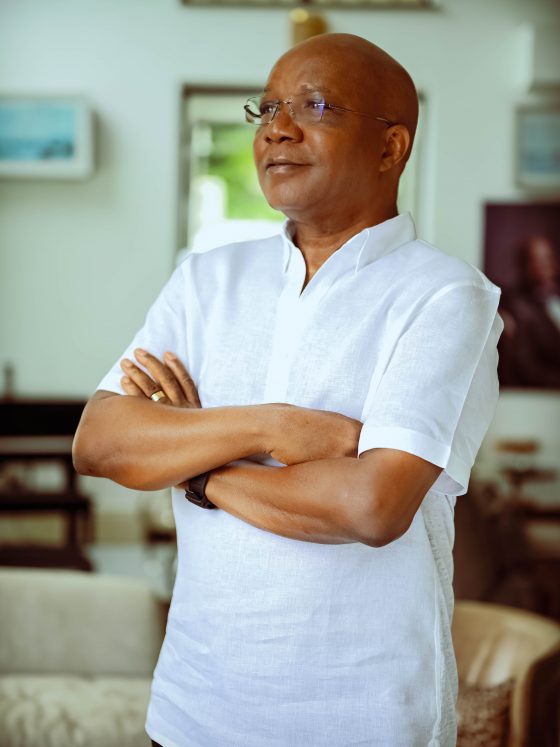Farooq Oreagba, currently the Managing Director/Chief Executive Officer Designate of NG Clearing Limited, boasts an impressive career in the financial services industry. With over two decades of experience in deal origination, capital markets, and investment banking, he has carved a niche for himself as a distinguished financial expert. His journey through the intricate world of finance has seen him excel in various roles, from heading the Eurostoxx 50 derivatives trading desk at AFS London to building a Pan-European Equity group at Cube Financial (Fortis).
Despite his professional accolades, Farooq’s path has not been without challenges. His battle with cancer, a formidable adversary, has shaped his outlook on life and work. Emerging victorious from this struggle, Farooq has turned his focus towards raising awareness and supporting others facing similar battles.
He recently became unexpectedly famous when pictures of him adorned in regal attire at the Ojude Oba Festival went viral. Dubbed “Mr. Steeze” for his effortlessly stylish appearance, he has captured the hearts of many. In this interview, he shares with us his desire to ensure that the festival garners the global recognition it deserves, his achievements in finance, and his cancer story.
Your photos from the Ojude Oba Festival took the internet by storm! What was your first reaction when you realised you were trending?
I was first told that I was trending while still on horseback, but I didn’t know the scale until about 8 p.m. Even then, it didn’t sink in until the next day. I was initially surprised, as I have been doing this event for many years. Ultimately, I see it as an opportunity to showcase positivity.
For those unfamiliar, can you explain what the Ojude Oba festival is all about and its significance?
Ojude Oba has been going for about 130 years now. It began when the then-Awujale gifted land to the Muslims in Ijebuland. Two days after every Eid, they used to go pay homage and thank the Awujale. Ojude Oba means the King’s Forecourt. In modern times, it has evolved into an event that showcases the finest of everything.
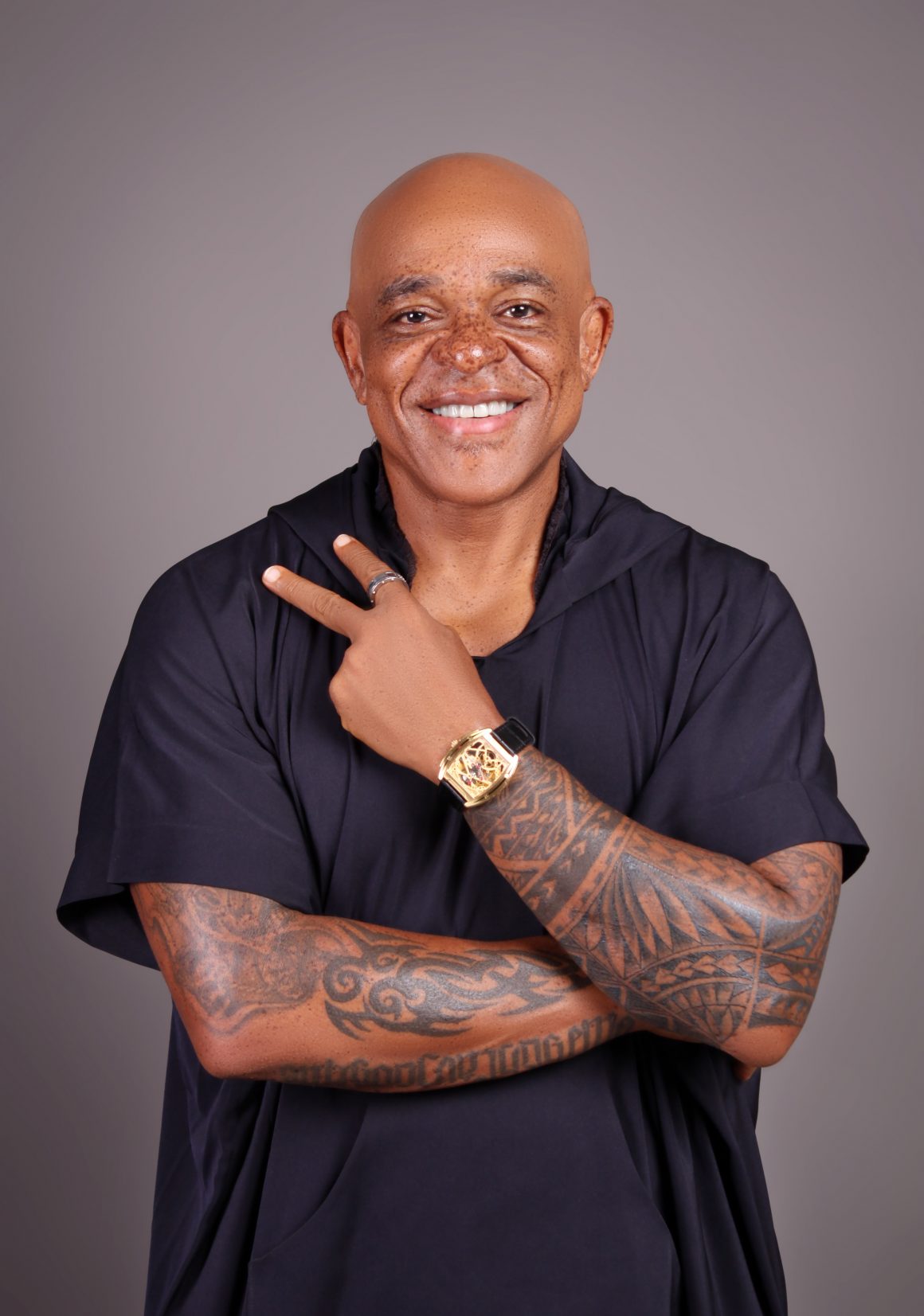
I can imagine a lot of preparation goes into it. What’s it really like for you personally? And how have you and your family been involved with it over the years?
As I mentioned while speaking to you earlier, we had one rider up until 1984, when another uncle started riding. Prior to riding, we ran alongside the horses or walked with the band of traditional drummers. Nowadays, we have traditional drummers, a brass band, and those in the procession alongside, say, 12-15 horses. It’s huge, and we can be circa 80-100 people in our family procession, and this takes some planning. In all honesty, though, I play no role, and I collect my outfit close to the time and just work with the horses. On the other hand, though, my family have to cater for the band and drummers from about ten days prior. They move into a family house and practice daily whilst being fed and watered by the family.
In what ways has the festival evolved since you first started attending? And how do you feel about its sudden increasing popularity?
The festival has gotten bigger and bigger every year and no doubt, next year will no doubt be the biggest so far. The outfits of both participants and attendees have become more glamorous, and the numbers have increased exponentially. As for the popularity, I am so chuffed because this is my heritage. It’s an opportunity to showcase my town and my Ijebu culture. I also see it as an opportunity to build something, a global event that will have lasting relevance for the indigenes. However, to do this successfully, there has to be some input from both the federal and the state governments. The Sagamu-ijebu road is a federal road and needs to be fixed. The roads in ijebu need to be fixed. Even the venue itself could do with a makeover. The increased turnout will have a commercial impact, too, and could boost the IGR for the state. There are so many opportunities, but we need to start planning now.
What was the highlight of this year’s festival for you?
Whenever we ride into the arena, EVERY rider gets a buzz. It’s hard to explain, but there is this energy emanating from the crowd. This year was crazy, and little did I know that the best was yet to come.
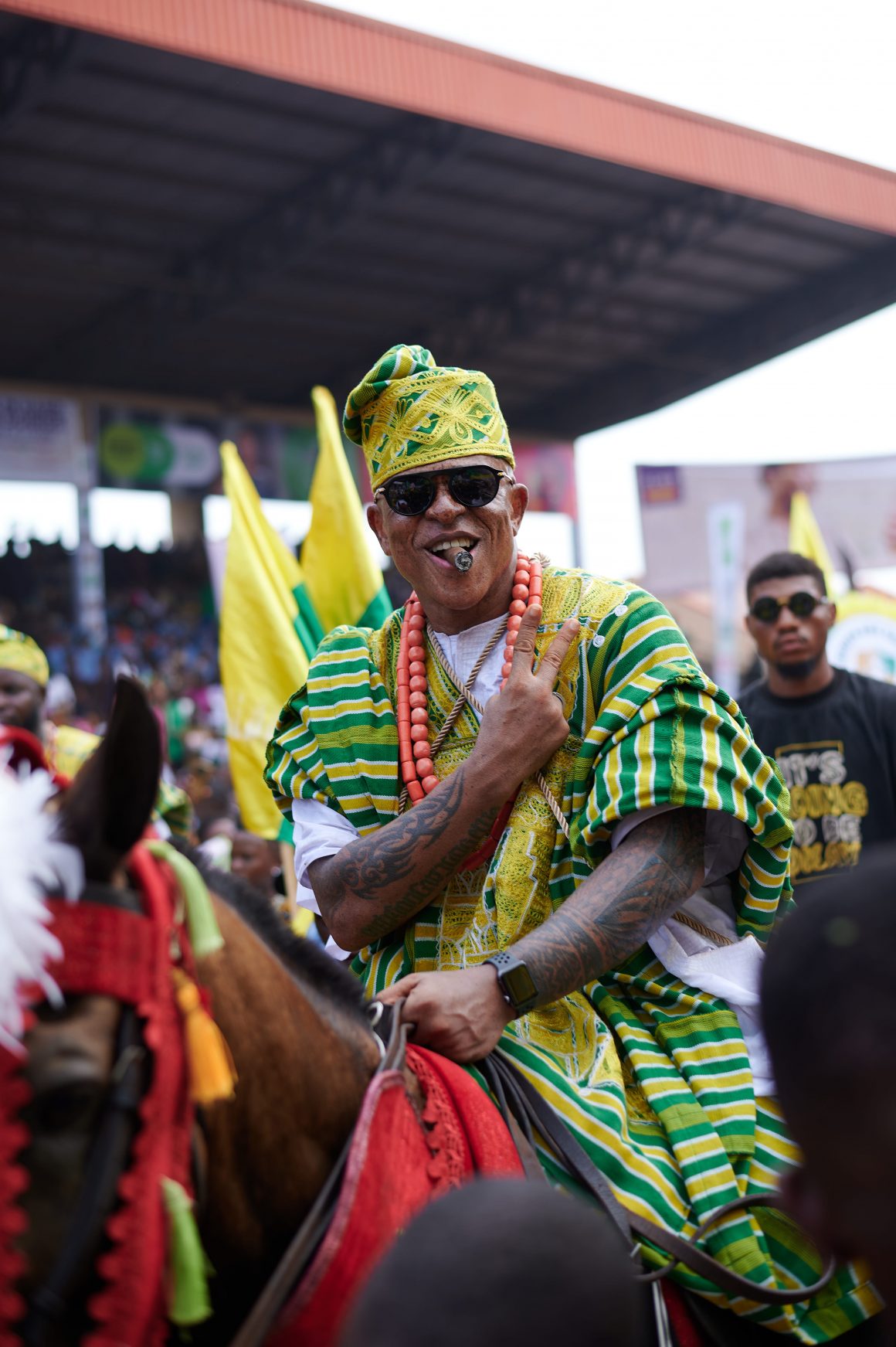
Can we talk about your career ? You have a pretty impressive CV. What initially drew you to the world of financial services?
Growing up, my mother was a sugar derivatives trader. She worked for a multinational, first in the U.K. and later in Nigeria. I watched her buy and sell physical sugar cargoes and trade the derivatives to hedge their exposure. Growing up, I was specific about what I wanted to be. I wanted to be a derivatives trader like Mum. Unfortunately, I was made to study engineering, but as soon as I got my degree (to satisfy Mum), I then went after my dream of being a derivatives trader, which I did successfully in the U.K. and Europe up until I returned to Nigeria in the early 2000s. Since then, I have been involved in creating new products for the capital markets, deals originating across Africa and now back to derivatives again. This is where I feel most at home.
With over two decades in finance, what would you say is your proudest achievement?
I have had many special moments, such as speaking at the World Economic Forum about developments in Nigerian Capital Markets. One special moment was when I signed off with Bloomberg in the U.K. on a new set of sector indices and the NSE30 index (now called the NGX 30). When I suggested we move away from the All Share Index as a benchmark, I was told that I was talking nonsense, but my colleagues and I still went on to create the indices with the help of Bloomberg. It is nice to see that not only are the indices in use today but a derivative contract has been created around the NGX 30. I get special joy from showcasing Nigeria and telling the world that our financial markets are open for business. I have had the pleasure of doing this a few times.
What does N.G. Clearing Limited look like under your leadership?
N.G. Clearing is what is called a Central Clearing Counterparty (CCP), the first in West Africa and one of only 3 or 4 in Africa. It focuses on clearing and settlement of derivatives as well as as collateral and risk management. Working alongside the stock exchange and other exchanges, we hope to facilitate the introduction of new products in the Nigerian Capital Markets. This is an essential requirement if the FGN is to meet its growth targets. In the process of doing this, N.G. Clearing hopes to help improve financial literacy and inclusion across the country. There are several new products in the pipeline.
What impact do you hope to leave on the financial industry in Nigeria?
In terms of impact, as I stated earlier, greater financial inclusion, improved financial literacy, and a deep and robust capital market would be great outcomes.
Your cancer story came as a shock to everyone. How and when were you first diagnosed?
I was first diagnosed in Feb 2014 as a result of a routine scan. I was not ill or anything…. It was just routine. I went for a 2nd and then 3rd opinion, and they all said the same thing. Then, I knew I had a problem to deal with. Up until then, you hope the results will say something else. Once confirmed, we looked at options and immediately began chemotherapy. I had my bone marrow transplant in August of the same year, and by God’s grace, I went into remission in February 2015. I continued chemotherapy for a further seven years and stopped in August 2022 because of the damage the chemotherapy was doing to my immune system.
So, how do you feel now? Has this experience changed your outlook on life?
Cancer has definitely changed my outlook on life. I realise that we are all here for a given period of time. There is no script or timetable for how long we will live, so we must seize the moment. I want my sons to get the best of their father, I want to make an impact, and I want to share some of my life lessons with others. That’s why I counsel cancer patients. I get so much satisfaction. Money is important, but it can’t be everything.
You have talked about advocating for others living with cancer. What motivated you to start this?
When I was diagnosed with cancer, my youngest child was two years old. I was determined that I would stay around him as long as possible, whatever it took. I had been detected early, so my chances of pulling through were greater, so I just went for it. It was tough mentally, but as each day went by, I accepted my fate and gave it my best shot. In many cases of cancer, the real battle takes place in the mind. If one gets that right and under control, it becomes a lot easier. I try to be living proof of that.
What’s one misconception about cancer that you wish people understood better?
Misconception? Simple… cancer can’t be cured; it can be beaten. Not every diagnosis results in death, so be prepared to battle, and you might just live. Life is worth fighting for because it is a privilege not given to everyone.
Looking ahead, are there any goals or dreams you are working towards?
Family comes first for me, and I want to spend as much time with my sons as possible. I don’t do that presently. Also, if I can have a wider impact in terms of creating awareness around cancer and providing facilities for screening and treatment, then I’m happy. I will continue running my marathons to raise money and awareness.
What’s one thing most people don’t know about you that you wish they did?
Most people think I’m a hard-living O.G. with no cares in the world. In actual fact, I am a real Mummy boy who loves his family and will take a bullet for his guys if need be. Family and loyalty mean a lot to me.
Finally, Farooq, if you had to choose a soundtrack for your life right now, what song would it be and why?
My song… Before I let go by Frankie Beverly and Maze.
It’s a song about a woman. But in my case, I substitute the woman for MY LIFE. I could never figure out where I went wrong, how I got cancer, why I got cancer. Needless to say, before I let go, I will make the most of what I have. My life


